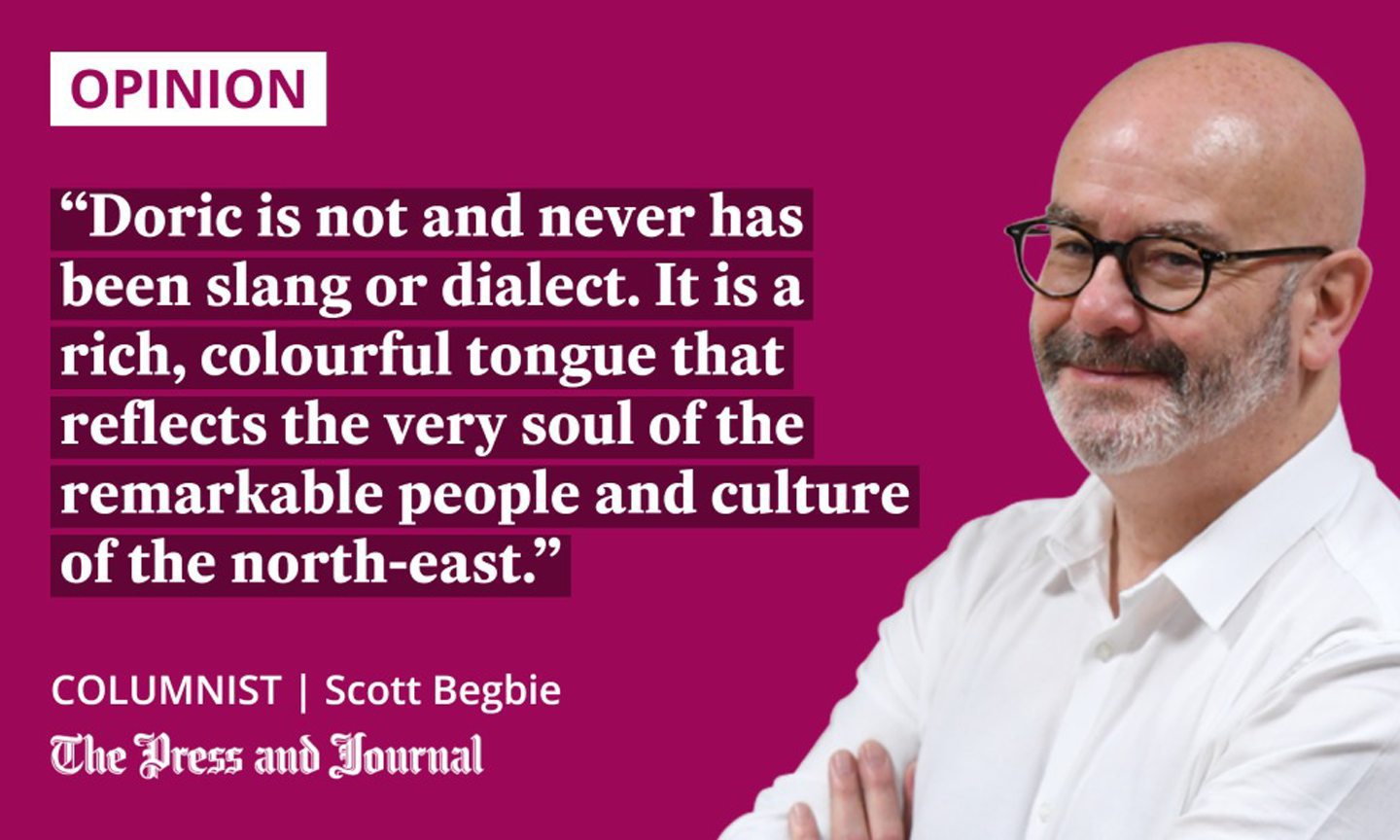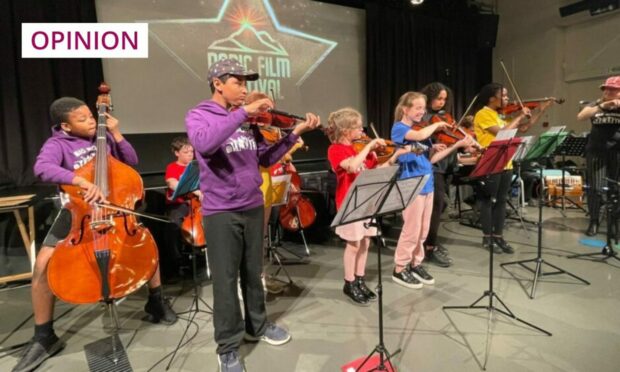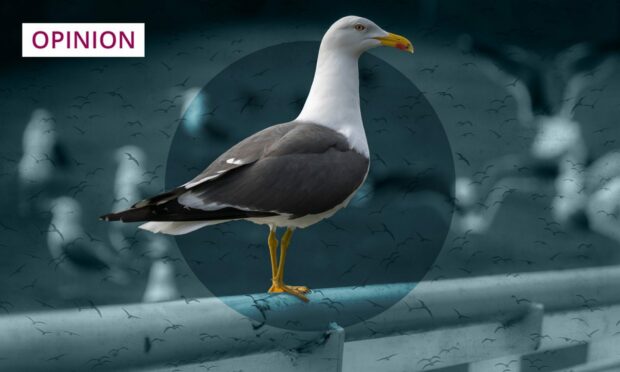A very strange thing has happened… I have developed Doric envy.
I wish I could actually use the lilting, rolling mither tongue and all those descriptive phrases and sayings that I hear around me every day.
Unfortunately, being an Edinburgh boy, any attempt I make at speaking Doric makes Dick Van Dyke in Mary Poppins sound like yer actual genuine Cockerney. Gor blimey, guv.
That’s what I get for being an inabootcomer, despite having lived in the north-east for more than a quarter of a century now.

Of course, my respect and admiration for Doric was not an instantaneous thing. Far from it.
When I first arrived in Aberdeen, with my carefully modulated Edinburgh tones (an affectation due to years of flattening out my Gorgie accent), I was genuinely mystified by people speaking full-on, rapid-fire Doric.
At this point, I will admit to my original Edinburgh bias that Doric was teuchter slang that would be none the worse if “proper” diction and elocution were in play.
I well remember conversations with people in which I just nodded along and smiled as this word soup of stuff came at me. How on earth do I know how my doos are? What, pray tell, are doos anyway?
But, over the years, my ear became accustomed to the language. I even say “fit like?” and call the chippie a chipper. I saw my earlier attitude to the mither tongue for what it was – an ignorant Central Belt sneer.
My Doric Diary
Recently, however, my appreciation for Doric has become an admiration. A love, even.
Two things were responsible. A couple of months back I went to see A Play, A Pie and A Pint piece, My Doric Diary.
It was a thing of beauty. Funny, heartbreaking and wise, and all in the best, unashamed Peterhead Doric, full of rhythm and lyricism and colour. The play, by Katie Barnett and James Siggens, is simply the best thing I have seen in a theatre this year. I grat.
Doric needs to be cherished and respected as one of the foremost languages of the many spoken in our country
Then, last week, I was invited along to the Doric Film Festival, where short movies celebrated the best of the language and its heritage. The films were all just passionate and brilliant, as were the speakers on the day. Apart from me.
My job was to hand over a prize in one of the festival’s categories. Third up, I started by apologising for being the first, and only, non-Doric speaker of the day. And it was heartfelt.
Doric isn’t ‘slang’
Doric is not and never has been slang or dialect. It is a rich, colourful tongue that reflects the very soul of the remarkable people and culture of the north-east, a special and unique part the world.
Which is why Doric needs to be cherished and respected as one of the foremost languages of the many spoken in our country. And why I wish I could speak it, not just comprehend it.
So, I was proud the prize I was presenting was in the schools’ category, where local children proved beyond doubt that the torchbearers for the next generation are keeping Doric burning brightly.
Long may it be so. I am sure there is a Doric way of saying that. I wish I knew what it is.
Scott Begbie is entertainment editor for The Press & Journal and Evening Express








Conversation